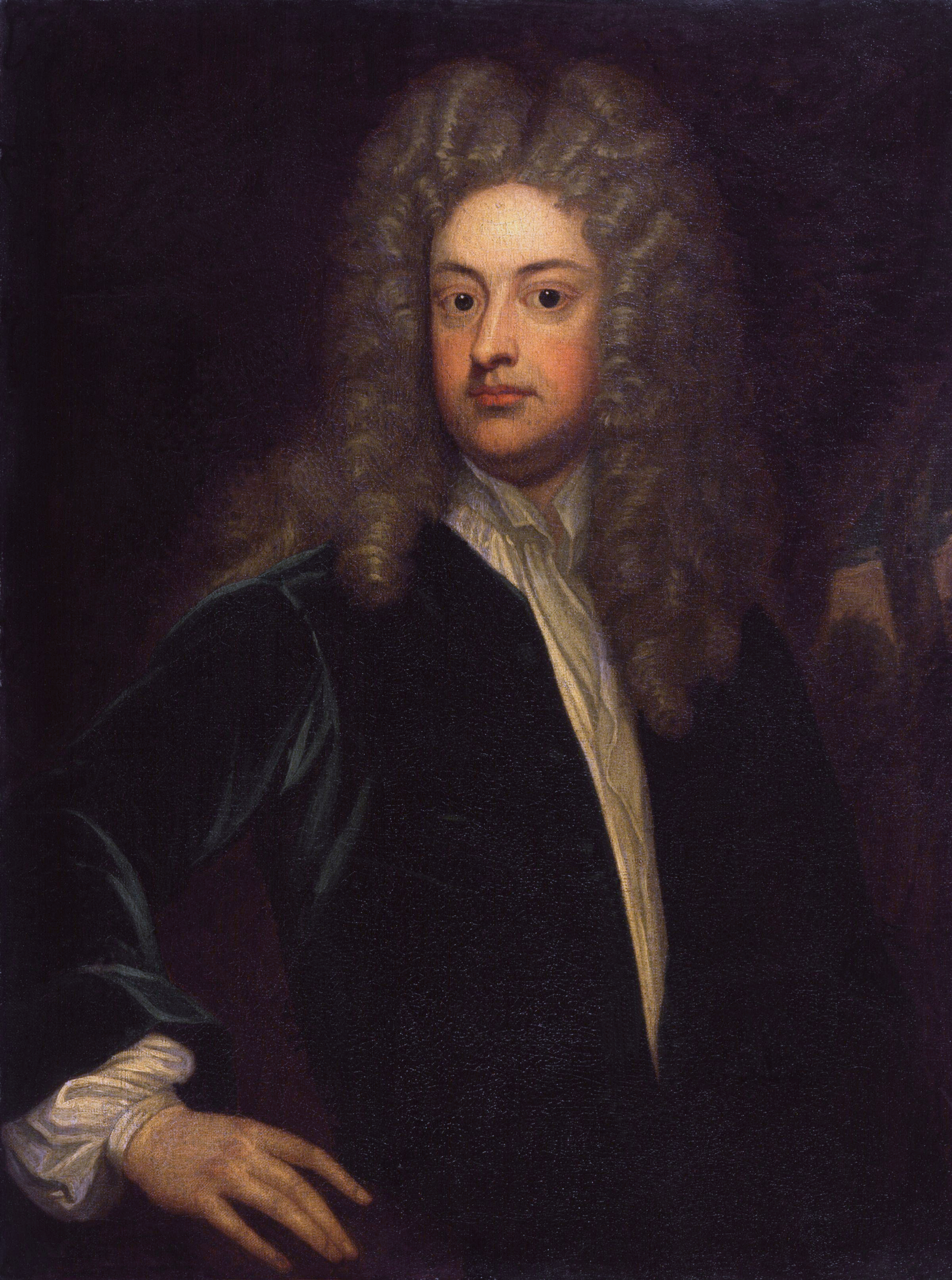Joseph Addison Frases famosas
Everything that is new or uncommon raises a pleasure in the imagination, because it fills the soul with an agreeable surprise, gratifies its curiosity, and gives it an idea of which it was not before possessed.
"The Spectator" (1711-1714); No. 412 (23 de junho de 1712)
“A leitura é para o intelecto o que o exercício é para o corpo.”
Reading is to the mind, what exercise is to the body.
"The Tatler", n. 147; ; The Works of the Right Honourable Joseph Addison - Volume 2, página 284 https://books.google.com.br/books?id=o2xUAAAAYAAJ&pg=PA284, Joseph Addison - J. Tonson, 1721
Variante: A leitura é para a inteligência o que é o exercício para o corpo.
Citações de homens de Joseph Addison
“A natureza delicia-se na comida mais simples. Todos os animais, exceto o homem, comem um só prato.”
Nature delights in the most plain and simple diet. Every animal but man keeps to one dish.
The Spectator, with illustrative notes: to which are prefixed, the lives of authors : comprehending, Addison, Steele, Parnell, Hughes, Buegel, Eusden, Tickell, and Pope : with critical remarks about their writings, Volume 3, Página 343 http://books.google.com.br/books?id=drsRAAAAYAAJ&pg=PA343, Joseph Addison, Sir Richard Steele - Printed for H.D. Symonds, T. Hurst, J. Walker, J. Scatcherd, A. and J. Black and H. Parry, Vernor and Hood, R. Lea, E. Lloyd, Otridge and Son, J Cuthell, Jordan Hookham, W. Miller, S. Bagster, R. Ryan, and R.H. Westley, 1794
Citações de vida de Joseph Addison
Joseph Addison frases e citações
“A educação é para a alma o que a escultura é para um bloco de mármore.”
What sculpture is to a block of marble, education is to the human soul.
"The Spectator (1711-1714)"; No. 215 (6 de novembro de 1711)
“As cores falam todas as línguas.”
Colors speak all languages.
"The Spectator", n. 416, 27 de junho de 1712; "The Works of Joseph Addison: Complete in Three Volumes : Embracing the Whole of the "Spectator," "&c; Por Joseph Addison; Publicado por Harper & Brothers, 1837 books.google http://books.google.com/books?id=vKQ3AAAAIAAJ&pg=PA145&dq=Colors+speak+all+languages.+Joseph+Addison
“Felicidade é alguém para amar, algo para fazer e algo para aspirar.”
citado em "Frases Geniais" - Página 13, de PAULO BUCHSBAUM - Editora Ediouro Publicações, ISBN 8500015330, 9788500015335
Variante: A amizade desenvolve a felicidade e reduz o sofrimento, duplicando a nossa alegria e dividindo a nossa dor.
Joseph Addison: Frases em inglês
“Nations with nations mix'd confus'dly die,
And lost in one promiscuous carnage lie.”
Fonte: The Campaign (1704), Line 152.
Moncure Daniel Conway, in The Sacred Anthology (Oriental) : A Book of Ethnical Scriptures 5th edition (1877), p. 386; this statement appears beneath an Arabian proverb, and Upton Sinclair later attributed it to the Qur'an, in The Cry for Justice : An Anthology of the Literature of Social Protest (1915), p. 475.
Misattributed
No. 185 http://archive.twoaspirinsandacomedy.com/spectator/spectator.php?line=185 (2 October 1711).
Often misquoted as "To be an atheist requires an infinitely greater measure of faith than to receive all the great truths which atheism would deny."
The Spectator (1711–1714)
“These widows, sir, are the most perverse creatures in the world.”
No. 335 (25 March 1712).
The Spectator (1711–1714)
“A woman seldom asks advice before she has bought her wedding clothes.”
No. 475 (4 September 1712).
The Spectator (1711–1714)
No. 269 (8 January 1712).
The Spectator (1711–1714)
Samuel Johnson in The Rambler, no. 148 (17 August 1751).
Misattributed
“Some virtues are only seen in affliction and some in prosperity.”
No. 257 (25 December 1711).
The Spectator (1711–1714)
“There is not so variable a thing in Nature as a lady's head-dress.”
No. 98 (22 June 1711).
The Spectator (1711–1714)
“The utmost extent of man's knowledge, is to know that he knows nothing.”
These words, sometimes attributed to Addison, are not found in his works, but in The Spectator, no. 54, he translates the following words of Socrates, as quoted in Plato's Apology: "When I left him, I reasoned thus with myself: I am wiser than this man, for neither of us appears to know anything great and good; but he fancies he knows something, although he knows nothing; whereas I, as I do not know anything, so I do not fancy I do. In this trifling particular, then, I appear to be wiser than he, because I do not fancy I know what I do not know."
Misattributed
Samuel Johnson in The Rambler no. 148 (17 August 1751).
Misattributed
Sir Alfred Jules Ayer, in his "The Meaning of Life", collected in The Meaning of Life, and Other Essays (1990).
Misattributed
No. 562 (2 July 1714).
The Spectator (1711–1714)
“Why wilt thou add to all the griefs I suffer
Imaginary ills, and fancy'd tortures?”
Act IV, scene i.
Cato, A Tragedy (1713)
“There is not a more unhappy being than a superannuated idol.”
No. 73 (24 May 1711).
The Spectator (1711–1714)
No. 476 (5 September 1712).
The Spectator (1711–1714)
No. 169 (13 September 1711).
The Spectator (1711–1714)
“The honors of this world, what are they
But puff, and emptiness, and peril of falling?”
Act IV, scene iv.
Cato, A Tragedy (1713)
No. 120 (18 July 1711).
The Spectator (1711–1714)
No. 477 (6 September 1712).
The Spectator (1711–1714)
No. 225
The Tatler (1711–1714)
No. 225
The Tatler (1711–1714)
No. 225
The Tatler (1711–1714)
No. 225
The Tatler (1711–1714)
